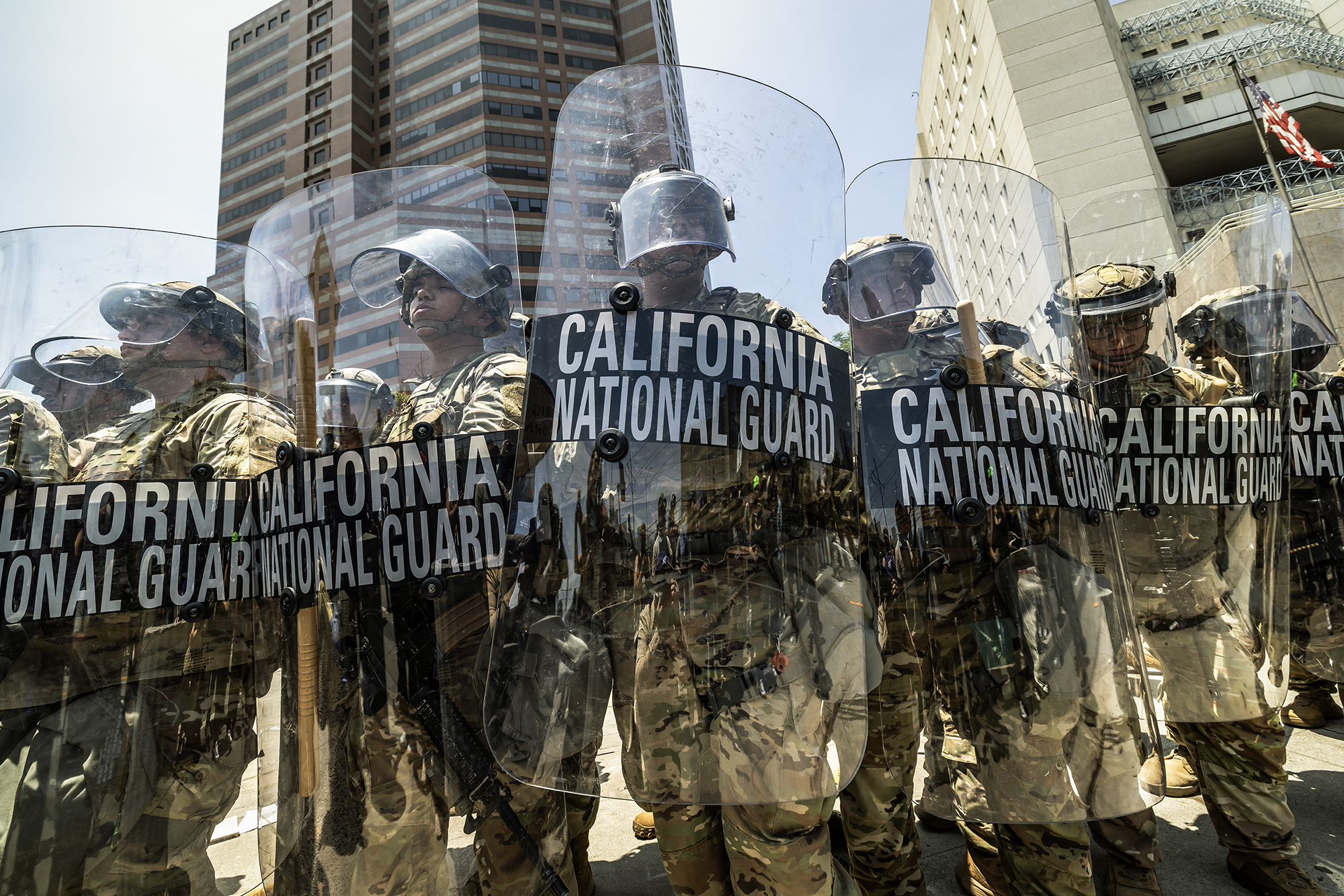The legal authority behind the deployment of the California National Guard to Los Angeles is under scrutiny as a federal court in San Francisco prepares to hear a case filed by Governor Gavin Newsom and California Attorney General Rob Bonta against President Donald Trump. The case is set to begin at 1:30 p.m. today.
Central to the legal battle is whether Trump or Newsom has the ultimate authority to deploy troops in response to civil unrest. Legal experts are divided on the implications of this case, which could reshape the understanding of state versus federal power in managing domestic disturbances. Critics, including Newsom, have deemed Trump’s troop deployment an overreach.
In a passionate speech on Tuesday, Newsom likened Trump to “failed dictators” and stated, “Authoritarian regimes begin by targeting people who are least able to defend themselves, but they do not stop there. Trump and his loyalists, they thrive on division because it allows them to take more power.”
Jessica A. Levinson, a constitutional law expert from Loyola Marymount University, suggested that convincing the court to limit the president’s authority could be challenging. The Trump administration argues that deploying armed troops will restore order where local law enforcement has struggled, while critics assert that sending Marines trained for combat into a city facing civil unrest could exacerbate tensions.
Following recent protests against federal immigration raids, Trump authorized the National Guard’s deployment to Los Angeles over the weekend, citing “incidents of violence and disorder.” Thus far, 4,000 National Guard members and 700 U.S. Marine troops are being dispatched to assist federal agents.
Judge Charles Breyer, who was appointed by President Bill Clinton, will oversee the proceedings. Trump has not yet invoked the Insurrection Act, which would grant him broader powers to deploy troops domestically.
Bonta’s legal team points to a federal statute that has rarely been used, previously invoked by President Richard Nixon during a postal strike. Newsom and Bonta’s lawsuit, filed after a formal request to Trump to rescind the troop activation, contends that the military presence is unnecessary and harms state sovereignty. Their suit seeks a temporary restraining order against the orders.
Their concerns resonate with prominent military figures; two former service secretaries and six retired generals recently supported the lawsuit. They warned that the deployment, without clear presidential authority, could jeopardize the mission of the National Guard and the Marines while politicizing the military.
During a Congressional hearing, Defense Secretary Pete Hegseth declined to specify whether he would comply with any court ruling against the deployment of active-duty Marines.
Newsom’s lawsuit asserts there is no military crisis in Los Angeles, framing the unrest as manageable by local authorities. He maintains that federalizing the National Guard requires gubernatorial approval under state law.
In contrast, Trump’s legal team contends that the statute grants the president unequivocal authority to issue such orders. They characterized Newsom’s requests as politically motivated distractions that jeopardize public safety, arguing that local and state enforcement has failed to restore order.
Legal experts indicate the case presents a rare challenge to presidential power in military deployments, with Eighteen Democratic state attorneys general expressing their support for Bonta, stating, “The president’s decision to federalize and deploy California’s National Guard without the consent of California state leaders is unlawful, unconstitutional, and undemocratic.”
Ben Christopher contributed to this report.

